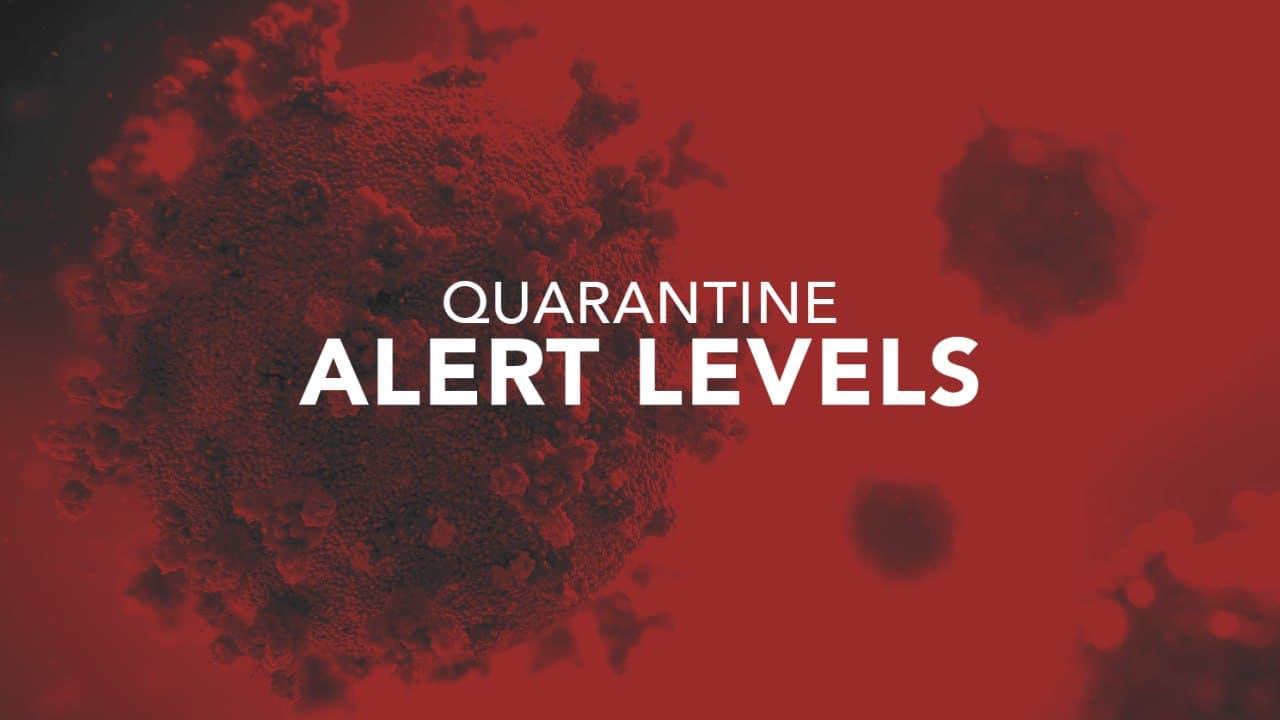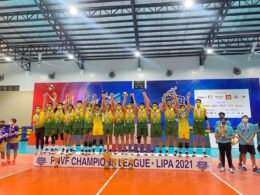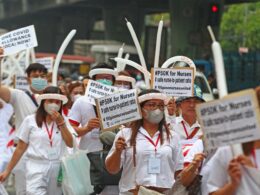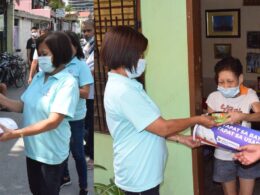From “NCR Plus bubble,” GCQ “with heightened restrictions,” to “tiny bubbles”, the Philippine pandemic task force has been introducing different forms of lockdown in a bid to curb the spread of COVID-19.
What is the government’s latest addition to these quarantine classifications? A new “Alert Level System” complemented with granular or small-scale lockdown.
This major policy shift will be piloted in Metro Manila from September 16 to 30, with Alert Level 4 to be imposed over the region, said Interior Secretary Eduardo Año in a TV interview with GMA News.
Here are the things that you need to keep in mind during the pilot run of the new strategy based on the government’s guidelines released on Monday, September 13.
How it will be enforced
Under the new approach, there will only be two quarantine classifications that will be implemented: enhanced community quarantine (ECQ) and general community quarantine (GCQ).
However, the GCQ this time will be different from the old one as there will now be Alert Levels 1 to 4 declared over each city or municipality.
On the other hand, the ECQ — the strictest among all types of lockdown — will now be referred to as Alert Level 5 having the same restrictions.
The Department of Health (DOH) will decide what alert level shall be put per city or town in close coordination with Metro Manila mayors, except for Alert Level 5 as only the national task force has the power to impose such.
But for the pilot period, the capital region will undergo a uniform alert level: Alert Level 4. Areas under this alert level are those with high and/or increasing COVID-19 transmission and high total bed and intensive care unit utilization rates.
Below is your guide to what you can and can’t do once Metro Manila begins to transition to Alert Level 4.
Who can go out
Travel is prohibited for minors, senior citizens aged 65 and above, persons with comorbidities, and pregnant women unless for accessing essential goods and services, work, or emergencies.
Intrazonal and interzonal travel for persons not required to remain at their residences may be allowed subject to guidelines of their destination local government unit.
Individual outdoor exercises are allowed regardless of age, comorbidities, or vaccination status, but only within the place of residence such as barangay, purok, or subdivision/village.
What industries, activities are prohibited
- libraries, archives, museums, galleries, cultural shows, and exhibits;
- indoor venues for meeting, incentives, conferences, and events;
- cinemas;
- karaoke bars, bars, clubs, concert halls, and theaters;
- outdoor and indoor amusement parks;
- internet cafes, billiard halls, amusement arcades, bowling alleys, and similar venues;
- indoor limited face-to-face classes, except those previously approved by the national government;
- casinos, horse racing, cockfighting;
- social events such as concerts and parties, wedding receptions, engagement parties, wedding anniversaries, debut and birthday parties, family reunions, and bridal or baby showers, parades, processions, motorcades, and gatherings at residences with any person outside one’s immediate household;
- fitness studios, gyms, spas, or other indoor leisure centers or facilities, and swimming pools;
- all contact sports, except those conducted under a bubble-type setup approved by the LGU;
- medical aesthetic clinics, cosmetic or derma clinics, make-up salons, reflexology, aesthetics, wellness, and holistic centers;
- acupuncture and electrocautery establishments;
- massage therapy including sports therapy establishments (home service not permitted);
- staycations.
Which industries, activities are allowed
- al-fresco dine-in services at 30% capacity;
- indoor dine-in services at 10% capacity, but only for the fully vaccinated;
- outdoor personal care services (barber shops, hair spas, nail spas, and beauty salons) at 30% capacity;
- indoor personal care services at 10% capacity, but only for the fully vaccinated;
- gatherings for necrological services, wakes, inurnment, or funerals for those who died from causes other than COVID-19.
- government agencies and instrumentalities must remain fully operational and must follow an on-site working capacity of at least 20% backed with work-from-home or flexible schedule arrangements.
All other businesses and activities not mentioned above are allowed to operate at a full capacity, except for those areas under granular lockdown.
What is granular lockdown
A granular lockdown is being implemented in small areas such as a street, a barangay, or a floor of a condominium that reported high number of cases of COVID-19.
City and town mayors have the authority to impose granular lockdowns for no shorter than 14 days in areas under their jurisdiction.
Only health workers, uniformed personnel enforcing the restrictions, returning or outbound overseas Filipino workers, and those with emergencies, will be permitted to enter and exit areas under a granular lockdown.
Affected residents were assured that they will receive meals and/or cash aid from the LGU and the Department of Social Welfare and Development.
—
Meanwhile, the current wide-scale community quarantine status of the rest of the country will remain to be effective for now.
Metro Manila’s nearby province Cavite, for example, will be under modified enhanced community quarantine (MECQ) until the end of September.
The new system is said to be designed as the government’s attempt to strike a balance between protecting public health and restarting the country’s economy.
The Philippines is grappling with yet another surge in COVID-19 infections partly due to the more virulent Delta variant. The country still has 177,670 active carriers of the virus, with 18, 056 fresh infections recorded Tuesday.
To know more about the protocols of other alert levels, read the IATF resolution here









